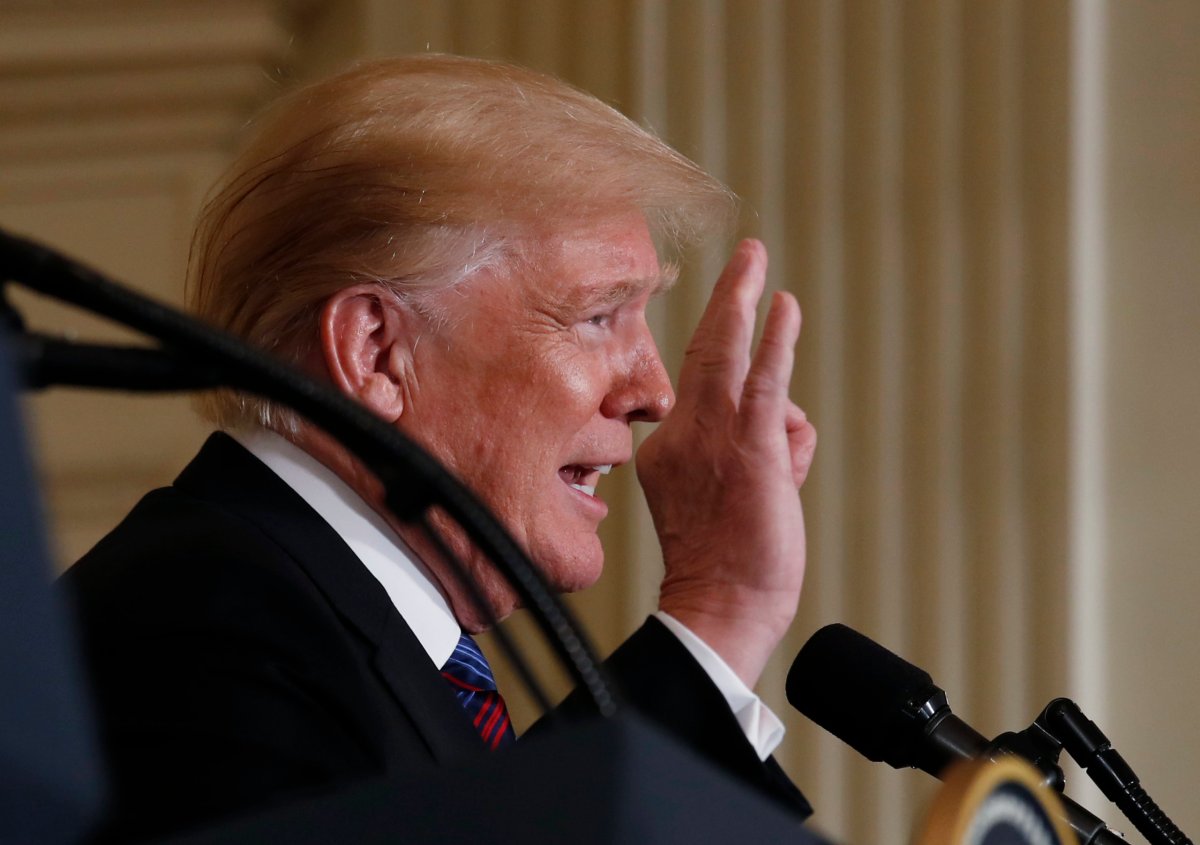By James Oliphant and Caren Bohan
WASHINGTON (Reuters) – Before last month’s special congressional election in Pennsylvania, U.S. President Donald Trump, who ridiculed his rivals in the 2016 election as “Liddle Marco,” “Lyin’ Ted,” and “Crooked Hillary,” tried it again, tagging Democratic candidate Conor Lamb as “Lamb the Sham.”
This time, the tactic failed.
But it illustrated a penchant for often brutally effective nicknames that Democrats are bracing for Trump to employ when he campaigns for Republicans in November’s congressional elections.
All 435 seats in the U.S. House of Representatives and a third of the 100-member Senate will be up for grabs. A Democratic takeover of one or both chambers could derail much of the Republican president’s policy agenda.
While acknowledging that the tabloid-style strategic branding may have worked for Trump in the presidential election, Democrats insist they will not be baited into fighting back with name-calling of their own.
“I don’t think that we should ever do stuff like that,” Representative Keith Ellison, deputy chairman of the Democratic National Committee, told Reuters.
Ellison is all too familiar with Trump’s scorched-earth shorthand. In 2016, he was an early and fervent supporter of Democratic presidential candidate Bernie Sanders, or “Crazy Bernie,” as Trump called him. “When they go low, we should go high,” Ellison said in a comment echoed by other Democrats.
So far, the nicknaming that Trump wielded like a political sledgehammer in the 2016 election has had limited success in congressional races. While Republicans Marco Rubio and Ted Cruz and Democrat Hillary Clinton were all vanquished in the 2016 presidential race, Lamb beat his Trump-backed rival in a result that rattled the Republican establishment.
In the widely watched U.S. Senate race in Alabama in December, Trump branded Democrat Doug Jones as “Liberal Puppet Jones.” But Jones pulled off a major upset over Republican Roy Moore, becoming the first Democrat elected to the Senate from Alabama in 25 years.
Still, Trump is showing no inclination to abandon the practice. On Tuesday, he unveiled on Twitter a new handle for former President Barack Obama: “Cheatin’ Obama” – although it was not clear what Trump meant by the moniker.
LASTING DAMAGE
Polling suggests, however, that Trump’s nicknames often work and can inflict long-lasting political damage. Exhibit A: Jeb Bush. After Trump derided his presidential rival as “Low energy Jeb Bush,” the nickname appeared to stick. A Reuters/Ipsos poll in 2016 found that more than a third of Republican voters believed Bush, a former Florida governor, was a “low energy” person.
“He defines his opponents’ brands,” Tim Calkins, a marketing professor at Northwestern University, said of Trump.
Dismissing Trump’s broadsides as simple schoolyard taunts carries political risk, as Clinton found out. Experts in communications and marketing warn not to underestimate the ability of Trump, a former reality TV star, to define opponents and issues in easy-to-grasp language that resonates with the public.
Aides say Trump believes his labels are effective because they can carry a ring of truth.
“You have to brand people a certain way when they’re your opponents,” Trump told a rally in Boca Raton, Florida, in early 2016. At that event, he took the time to make sure that attendees knew that his label for Rubio was spelled “L-I-D-D-L-E,” which apparently made it more demeaning.
The crowd ate it up. A few days later, Trump trounced Rubio in the Florida Republican primary, and Rubio dropped out of the race.
In Rubio’s case, the shot was not just a reference to his height – he is 5 feet 9 inches tall – but to his relatively brief time in the Senate, amounting to a suggestion he was not ready to be president, said a former campaign adviser to Trump who asked to remain anonymous to discuss the matter.
‘DEFINING THE BATTLEFIELD’
“The name-calling is juvenile and unpresidential, but there’s no doubt it can be effective,” said Alex Conant, a top adviser to Rubio at the time. “Trump understands the power of branding more than any politician ever has.”
The danger for Trump’s opponents, said Dietram Scheufele, a professor of communications at the University of Wisconsin, was “letting him define the battlefield.”
Some Republicans appear inclined to take a cue from Trump’s playbook. At a presentation to Republican state senators in California in February, a leading Washington Republican pollster urged 2018 candidates to go negative, saying it would help define the choices for voters.
In a PowerPoint slide, the pollster wrote: “The best defense is a good offense. Don’t be afraid of ‘giving your opponent name ID’ – especially if that name ID is of the negative kind.”
But Ellison said Democrats should not get into a war of insults with Trump, even if it is to their advantage.
“Even if some really smart person showed that name-calling like that got you an extra percentage point, I’m still thinking I wouldn’t do it,” he said. “It’s wrong and we don’t want our children to do it and we don’t think it’s right.”
Republican Senator Jeff Flake, a Trump critic often mocked by the president as Jeff “Flakey,” said Trump’s attacks could excite his political base but may not have a broad appeal to voters in congressional races.
“It’s counter-productive if you are trying to maintain a majority and even if you are seeking re-election,” said Flake, who is not running again in Arizona.
(Reporting by James Oliphant and Caren Bohan; Additional reporting by Sharon Bernstein in Sacramento, Calif., Chris Kahn in New York and Kieran Murray in Washington; Editing by Peter Cooney and Tom Brown)



















